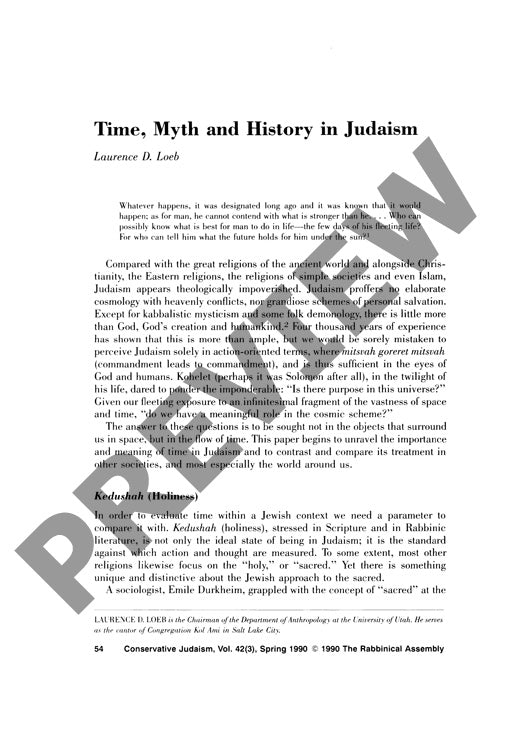Time Myth and History in Judaism
Couldn't load pickup availability
Time in Judaism operates through cycles rather than lines, challenging dominant scholarly views that emphasize historical progression. While academics have long focused on divine intervention in Jewish history, a deeper analysis reveals that Judaism privileges mythic patterns and moral truths over chronological accuracy. Through anthropological and theological examination of biblical narratives, rabbinic literature, and comparative religious perspectives, this research uncovers a polychronic temporal system where meaning emerges through contextual repetition rather than linear sequence. Biblical episodes from Eden to Exodus demonstrate how Jewish tradition transforms historical events into archetypal patterns that guide moral behavior across generations. The fulfillment of mitzvot occurs within natural and cultural rhythmic cycles, not arbitrary chronological points. Drawing on Durkheim's concept of the sacred, Einstein's relativity theory, and cross-cultural anthropological studies of temporal perception, the analysis reveals time as the central dimension of Jewish religious experience. Kedushah (holiness) manifests through cyclical rather than linear temporal structures, enabling Jewish communities to maintain cultural continuity and moral coherence across diverse historical circumstances. This mythic temporal framework, rather than linear historical time, serves as the primary vehicle for transmitting Jewish values and identity across generations.

More Information
-
Physical Description
-
Publication Information
Published 1990
ISBN
-
Publication Credits
Laurence Loeb

